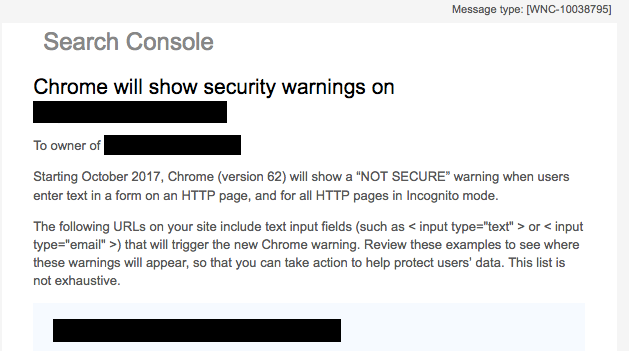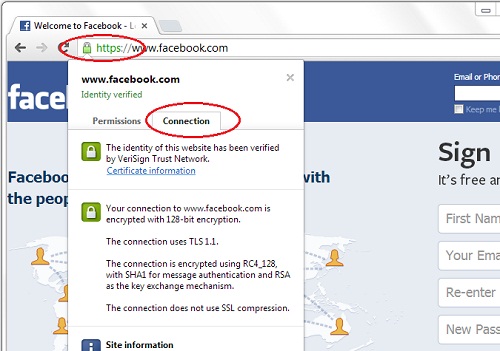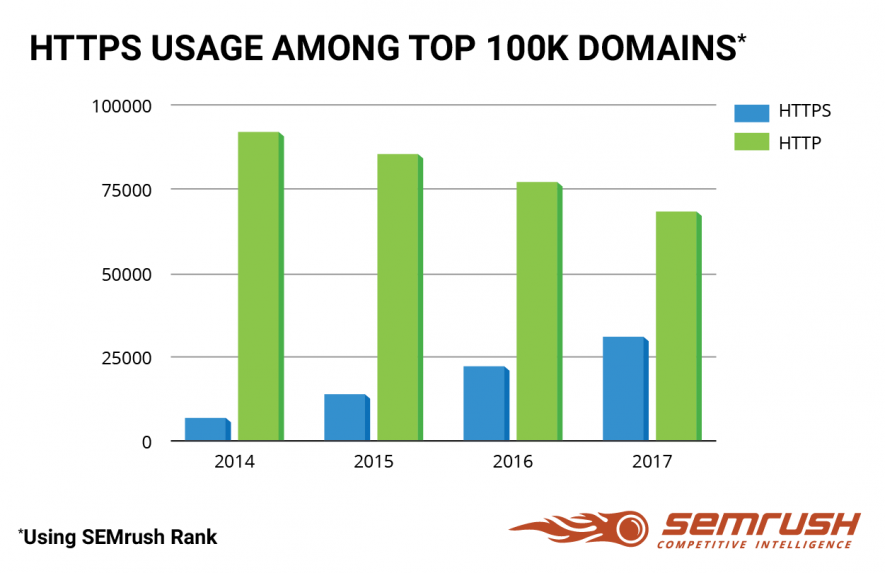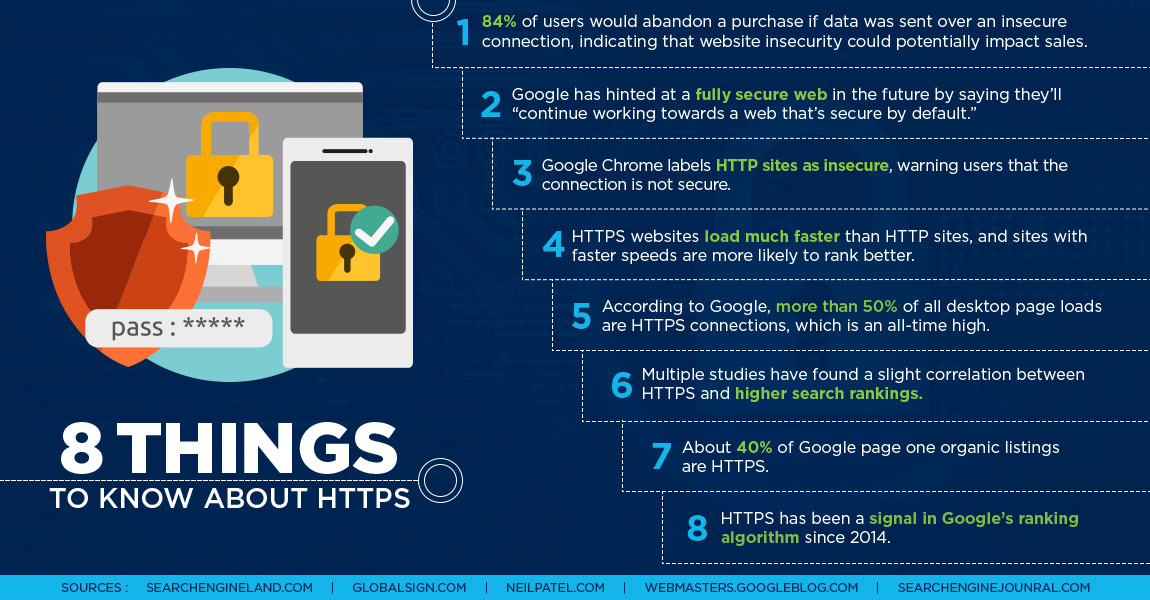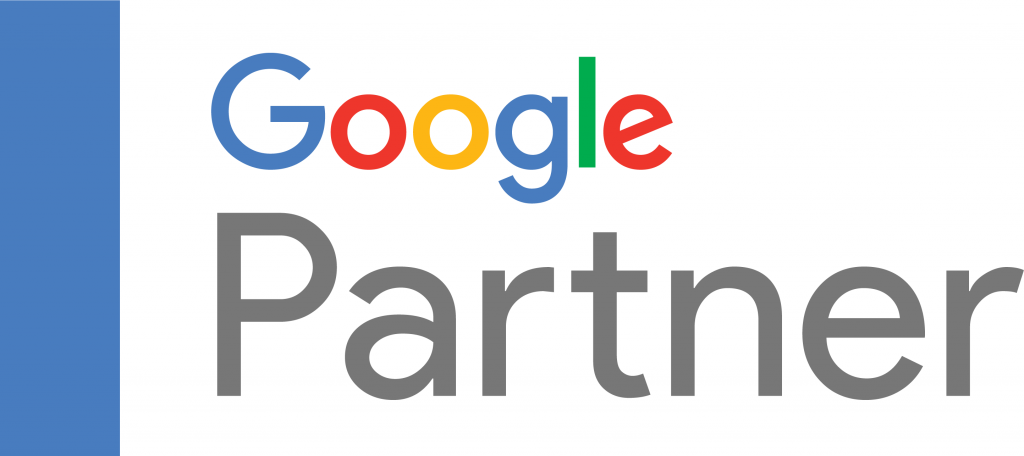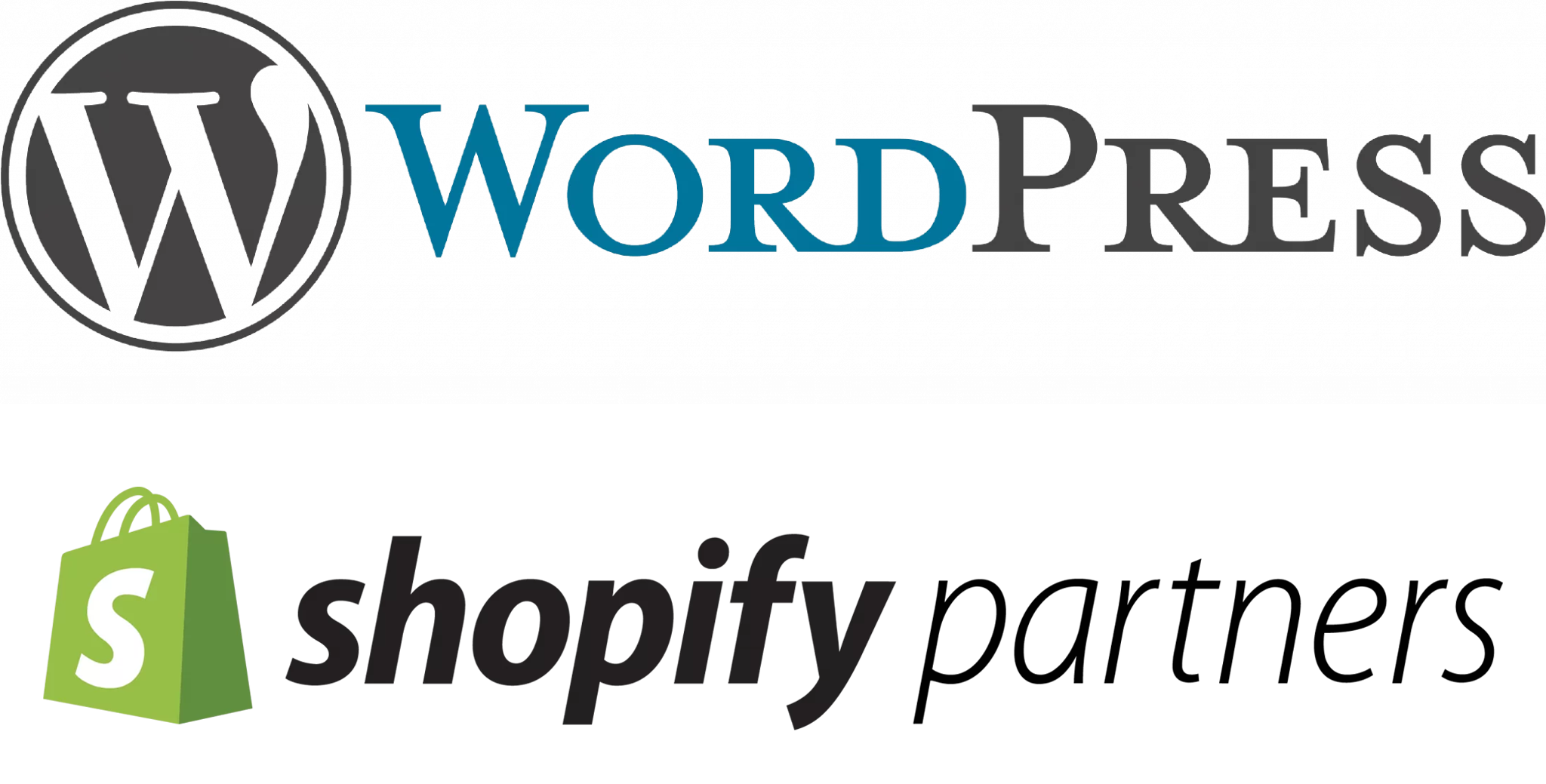By Airon Rodrigues
As announced in September, Chrome will soon mark non-secure pages containing password and credit card input fields as Not Secure in the URL bar.
What does this mean for websites that are not HTTPS (Hypertext Transfer Protocol Secure), secure? Essentially, users who enter an unsecured website will be alerted with a “NOT SECURE” warning.
Google is constantly encouraging website owners to implement SSL certificates. Secure Sockets Layer (SSL) allows websites to be accessed over HTTPS which encrypts information sent between the visitor and web server.
Above: Unsecure Warning sent by Google
Is my site secure and on HTTPS? Let’s look at an example.
An unsecured website will not show the lock symbol picture above.
How Important is HTTPS?
(Hypertext Transfer Protocol), HTTP alone has been the foundation for communication on the Internet. Everything sent between a client and server (data, information, content, etc.) is communicated through HTTP.
However, communicating through HTTP is not as safe as it used to be. Why? Because information on HTTP can get intercepted, manipulated or stolen without an advanced layer of security.
Therefore, the main benefit of HTTPS is that it makes a website more secure for users.
Google has even announced that HTTPS, is indeed, a ranking factor. This explains just how important Google values secure websites.
In a study conducted by SEMrush, the top 100,000 domains had been analyzed and saw that over the past three years, use of HTTPS has tripled among these websites.
These statistics show an increase from 7.6% to 31.5% in HTTPS implementation across these domains in just under three years.
SSL & HTTPS
HTTPS comes equipped with SSL to safely transfer data between two points. SSL analyses information communicated between two parties and ensures that data is not corrupted or stolen.
SSL is not the same as HTTPS, but both work in conjunction with one another. So, what exactly does SSL do? SSL is used to monitor data transmission to prevent data breaches while at the same time encrypting data passed between two parties ensuring the data is safe and secure.
So essentially, SSL is required to secure a website with HTTPS. Because SSL is the protocol that HTTPS uses, an SSL certificate needs to be purchased to integrate it with HTTPS.
Source: BlueCorona
SEO Benefits of HTTPS
Secure websites offer the following SEO benefits:
Boost In Rankings
HTTPS alone will not dramatically improve keyword rankings, but it can boost them to a certain degree. For big websites with millions of users, even a small boost in rankings can result in tens of thousands of visitors per month. However, for smaller websites and those just starting out, there may be no real difference in search traffic (yet).
The value of switching to HTTPS is very likely to increase over time and the case remains that above all else, security is the number one benefit of HTTPS implementation.
Referrer Data
When traffic passes to an HTTPS site, the secure referral information is preserved. When traffic passes through the normal HTTP site, the referral data is stripped away and is classified as “Direct Traffic”
HTTPS is an ideal system to preserve the secure referral information whenever the traffic passes to it. This would become an issue when analyzing traffic through reporting, as the exact source of traffic will remain unidentified.
Login Not Secure – Negative User Experience
User experience is a key factor in ensuring the success of a website. An unsecure website will have a negative effect on users, as they will be less likely inclined to submit information to an unsecure site. This can result in a loss of conversions and ultimately a loss in traffic.
Security and Privacy
HTTPS adds security to SEO in several ways:
- It verifies that the website is the one the server it is supposed to be talking to.
- It prevents tampering by third parties.
- It makes your site more secure for visitors.
- It encrypts all communication which protects browsing history and credit card numbers.
Establishing an HTTPS connection is valued by Google and adds a necessary layer of security for users as well as SEO benefits along the way. HTTPS will be the future for web clients and prolong taking action in according to unsecure warnings can harm an SEO campaign in the long-run. Before deciding to make the switch read Google’s best practices regarding HTTPS implementation.

